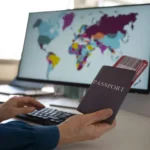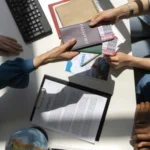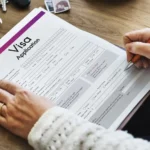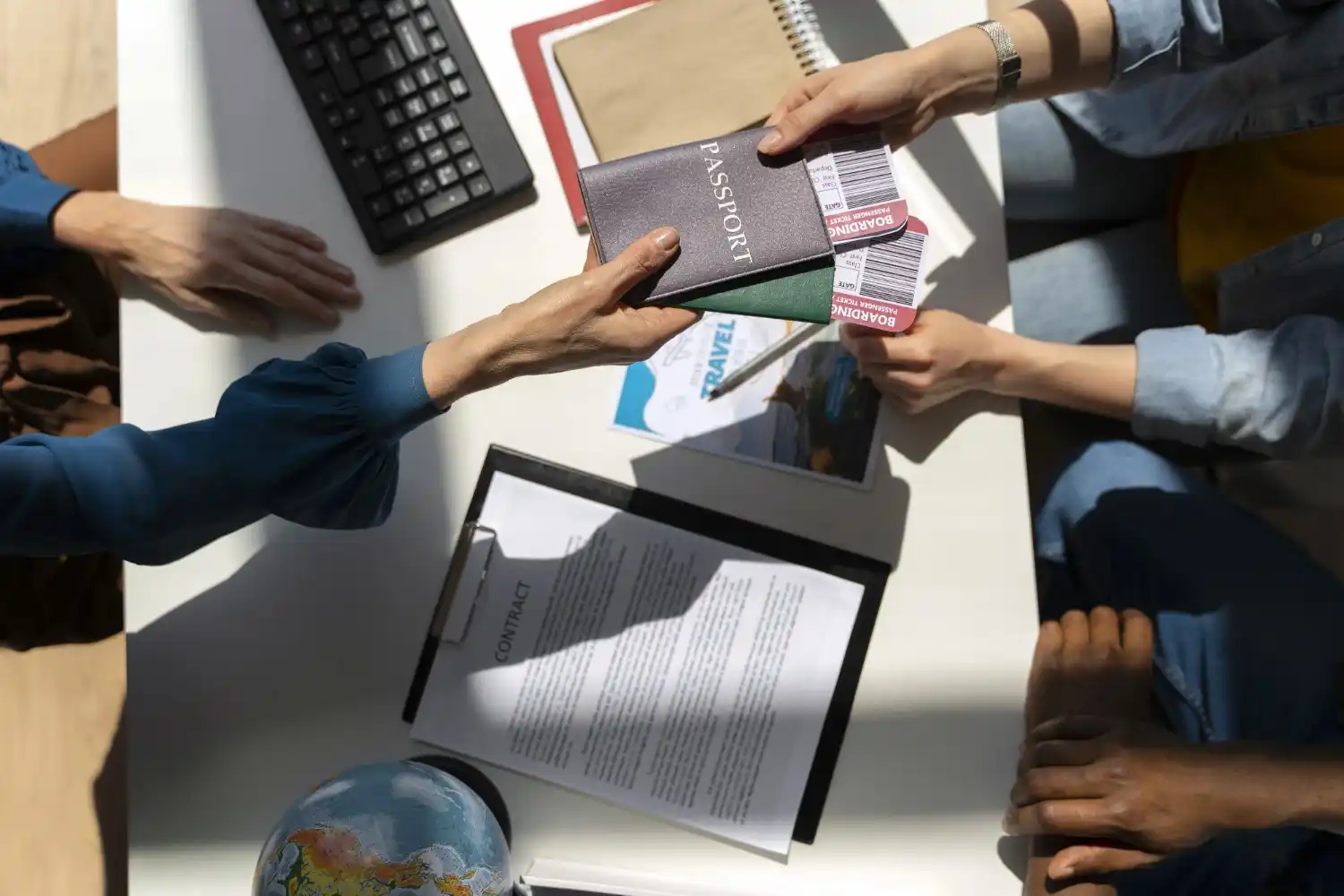Why Supporting Documents Matter for Study Abroad Applications
Supporting documents are much more than just a pile of papers. They are the basis of your application to study abroad and serve as official proof that you are who you say you are. Every document you send tells a part of your story by confirming your identity, academic background, financial ability, and plans to travel. These papers are used by universities, visa officers, and immigration officials to check your information and make sure you meet all the requirements. When your papers are complete, correct, and well-formatted, they make a good first impression and show that you are ready for international education. An abroad education consultancy can help you prepare and organize these documents effectively to ensure a smooth application process.
On the other hand, not having the right documents, having the wrong ones, or having them in the wrong order can make things very hard for you. They could cause delays in the application process, increase the chances of rejection, or ask for more proof. All of which could change when you get accepted or when your visa is approved. If you send in a well-organized, error-free set of documents. You will not only speed up the process, but you will also build trust and confidence with the people who are in charge of your file. An experienced abroad education consultancy can guide you in preparing, reviewing, and submitting your documents correctly, helping you avoid common mistakes. In short, filling out your paperwork correctly. Shows that you are professional and increases your chances of having a smooth and successful study abroad experience.
List of Essential Supporting Documents for Students
There may be specific requirements for each country. But these are the most common and widely accepted documents you need to apply to study abroad.
1. Travel Itinerary (Flight Tickets, if Requested)
One of the most important supporting documents for your study abroad application is your travel itinerary. It gives a full picture of your trip, including when you will leave, when you will arrive, and how you will get there. Embassies and visa centers use this paper to make sure that your travel plans match the dates. You were accepted, and the length of time your visa is valid. A well-planned itinerary shows that you’ve done your research and have a clear plan for getting to your study destination on time. It also helps the authorities keep track of when you come and go. This ensures you follow the rules of your visa. An abroad education consultancy can help you prepare a proper travel itinerary that aligns with your admission dates and visa requirements, ensuring a smoother approval process.
Tip: Avoid purchasing non-refundable flight tickets before your visa is approved. Sudden delays or document reviews can affect your travel timeline. Instead, opt for a provisional flight booking or request a travel itinerary from an authorized travel agency, which can be easily modified later. This approach keeps your plans flexible while still meeting the document requirements set by embassies and consulates.
2. Accommodation Proof
Your accommodation proof shows where you’ll be staying during your study period. It helps universities and visa officers confirm your living arrangements and ensures that you have a safe, planned place to stay before you arrive. Submitting clear and verified accommodation details also reflects your readiness and responsibility as an international student. An abroad education consultancy can guide you in preparing and verifying your accommodation documents. Making sure everything is accurate and accepted by the authorities.
This can include:
• University housing or hostel confirmation letters
• Rental agreements or hotel bookings
• Invitation letter from a host (if staying with relatives or friends)
• Temporary accommodation proof (if awaiting permanent housing)
Tip: Always ensure the document clearly mentions your full name, complete address, contact number, and dates of stay. Consistency with your visa and admission forms helps avoid unnecessary delays during verification.
3. Passport Copies
Your passport copies serve as your primary identification document for all study abroad processes. Visa applications typically require clear, color copies of your passport’s photo and signature pages, and some countries may also ask for copies of previous visas or travel stamps to verify your travel history. An abroad education consultancy can help you organize and review your passport copies to ensure they meet all visa requirements and avoid any delays.
Tip: Keep multiple copies ready — one for submission with your visa application, one for personal backup, and one for your education consultant’s records. Ensure all copies are legible and up-to-date to avoid delays in processing.
4. Country-Specific Supporting Documents
Country-specific supporting documents are additional papers required by certain countries to meet their unique visa and immigration rules. These documents help verify your identity, conduct, health, and financial readiness for studying abroad. An abroad education consultancy can guide you in identifying and preparing these country-specific documents to ensure your application meets all requirements.
This may include:
- Police Clearance Certificate (PCC) to show that you have a clean record
- Biometric Registration to prove your identity
- Health clearance certificates from a medical exam
- Proof of funds, like bank statements or letters of support
Tip: Always check the embassy or visa website of the country you want to visit for the most up-to-date list of required documents. Requirements can change over time and from one country to another.
Tips for Organizing and Submitting Your Documents
Once you’ve collected all the necessary papers, it’s important to organize them correctly. A neat, full, and well-organized submission not only makes a good impression. But it also speeds up the process of getting a visa or getting into college.
This is how to keep things in order:
- Put your papers in the order that the embassy or university says to
- Use clear folders or labeled envelopes to make it easy to find them
- Look at the expiration dates on things like medical reports, passports, and bank statements.
- Keep digital copies that have been scanned for online submissions or emergencies.
Tip: Rao’s Edu helps students double-check their document sets before they send them in to make sure they don’t miss anything important. This gives you peace of mind and makes your study abroad experience go smoothly.
Common Mistakes to Avoid During Submission
- Many students have to wait longer because of mistakes on their paperwork that could have been avoided. Know about these common mistakes:
- Sending in forms that aren’t complete or that are missing pages.
- Not signing or attesting to some documents
- Uploading scans or photos that aren’t clear.
- Not paying attention to deadlines or rules that are specific to a country.
Rao’s Edu is the best partner to help you study abroad easily, without stress, and with success. Our expert consultants will help you with every step, from getting your student visa to getting your supporting documents ready. Don’t let paperwork or missed deadlines get in the way of your dreams. Let our team take care of the details while you think about your future. Call Rao’s Edu today for personalized counseling, document verification, and full visa help to make your journey to study abroad easy and stress-free.







